MAPFRE, committed to sustainability
TEXTO NURIA DEL OLMO | IMAGES ISTOCK, MAPFRE
This commitment is nothing new for MAPFRE, as it has been striving relentlessly to protect the environment since 2005. Its Corporate Energy Efficiency and Climate Change Plan (2014- 2020) promotes the use of 100 percent renewable energy, sustainable mobility and waste reduction, and has been key to reducing the Group’s carbon footprint by up to 51 percent, which amounts to 25,154 metric tons of CO2.
MAPFRE’s recent participation at COP25, the United Nations Climate Change Conference in December 2019, merely highlighted a reality we are already experiencing here. In this article we outline our measures designed to improve matters in this crucial area.
A successful strategy
The various actions undertaken by MAPFRE on environmental issues are governed by SIGMAYE (its Environmental, Energy and Carbon Footprint Management System), a strategic model which sets the guidelines for the Group’s environmental plans and brings together under one roof all the initiatives designed to minimize environmental, energy and carbon footprint impacts. This system is designed in accordance with the ISO 14001, ISO 50001 and ISO 14064 international standards, which MAPFRE renews annually and which offer objective proof of the effort being made. SIGMAYE is a successful model that has enabled us to implement common requirements throughout the Group’s companies and achieve measurable, quantifiable objectives.
Facilities certified at close of 2019
With ISO 50001 (Energy Management)
Where employees work under ISO14064 verification (Carbon Footprint)
In 2013, MAPFRE adopted the concept of green purchasing thanks to the first rule of a corporate nature which includes the assessment of environmental criteria in its procurement processes. A fine example is the fact that, in Spain, all the energy we consume comes from 100 percent renewable energy sources. In this regard, in order to satisfy the electricity demands at our facilities in Spain, we require our suppliers to provide renewable energy guarantee of origin certificates.
Energy-saving computers
We continue contributing to the reduction of greenhouse gas emissions through increased energy management efficiency at our facilities. One example of this is the use of tools that allow all computer equipment used by employees and delegates to be turned off remotely. The automatic shut-down of computers and monitors allows close to 20 percent savings in the energy consumption of office equipment. This measure is currently being implemented in Spain, where it is expected to reach over 10,000 employees.
MAPFRE promotes ecoefficient installations at both its main buildings and the offices within its sales network. To do so, it makes maximum use of natural light, thereby reducing energy used for artificial lighting, incorporates water-saving mechanisms, such as faucets with automatic shut-off nozzles and aerators (a device that mixes water with air to reduce consumption), and promotes waste reduction. This is evidenced by the fact that, in 2018, at the corporate headquarters in Spain and Portugal all plastic containers were replaced by glass bottles and compostable cups, resulting in a reduction of 1,500,000 plastic bottles.
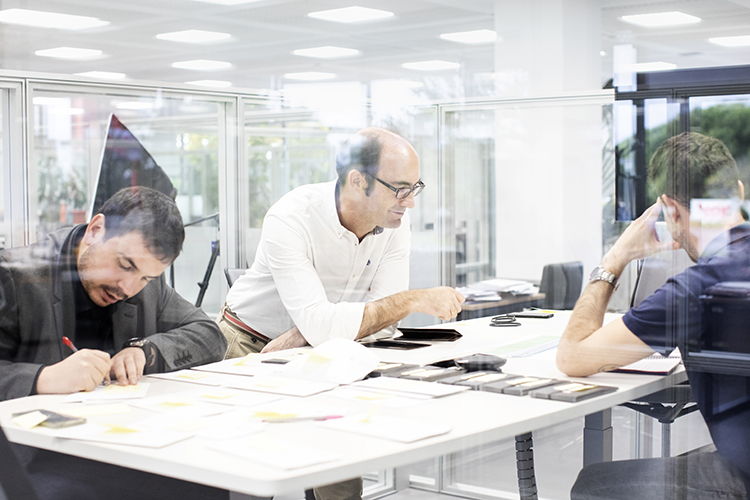
2.300* volunteers (employees and their Families)
25 countries
76 activities
70 cities around The world
1.800 trees planted
14 tons of trash Collected
(*) over 10,000 are participating in the corporate volunteering program
- employee routes
- bicycle parking space
- 46 free charge points for Electric or hybrid cars
- videoconferences as a way to limit airplane trips
- teleworking
- flexible schedules
When it comes to protecting the planet, every gesture counts. MAPFRE’s Global Volunteering Day, held last October under the slogan “All together for the Environment”, was a good example. There were two kinds of activities: the restoration or reforestation of degraded areas; and clearing marine debris from beaches or cleaning wetlands, rivers and forests. This year, participation figures increased by over 40 percent, compared to previous editions.
Sustainable mobility
Transport is one of the leading causes of global warming and this is why MAPFRE places at the disposal of its employees a range of different solutions that can help us be more sustainable and pollute less each and every day.
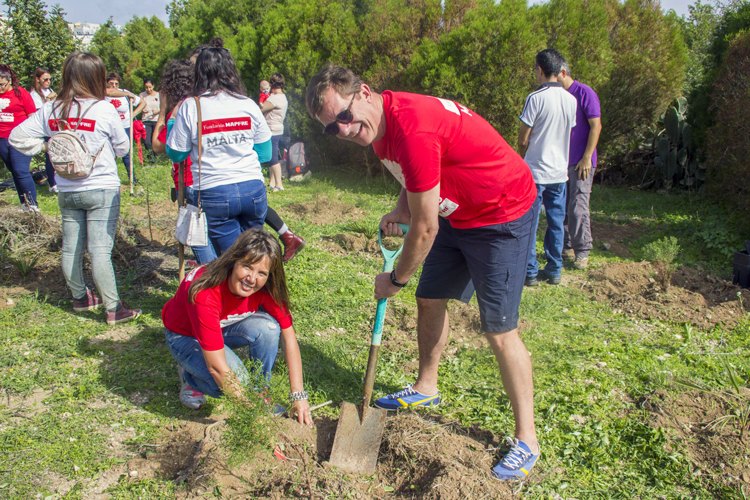
Overall, in 2018, MAPFRE issued more than 57,300 policies with coverage related to environmental questions. This accounts for a volume of premiums in excess of 56 million euros, which represents 0.25 percent of the Group’s total volume of premiums. These products include insuring renewable energy facilities (29,397 megawatts on wind farms and 4,929 at solar plants), insuring 43,765 low-emission vehicles through its ecological policy, and insuring sustainable crops and forests – with a total of 108,195 hectares insured. Most noteworthy among its environmental and energy services is the fleet of 25 fully electric vehicles capable of recharging electric cars at the roadside. In Spain there are already 18 hybrid tow trucks and 32 electric mobile workshops offering roadside assistance to our policyholders. We should also mention the research ongoing on damaged vehicle repair techniques undertaken by the CESVI (Experimentation and Road Safety Centers) in Spain and Latin America. This helps reduce the consumption of pollutant materials such as paints or solvents, as well as minimize the environmental impact of the vehicle repair activity. Thanks to making use of parts recovered from total loss vehicles, ever since 2004 this company has prevented more than 47,500 metric tons of CO2 emissions, and has avoided the annual generation of 825 metric tons of glass and 1,200 tons of plastic at its workshops in Spain.
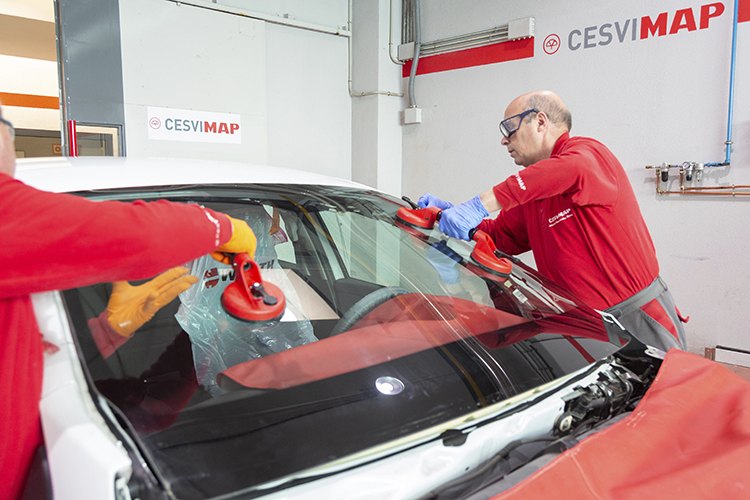
MAPFRE’s commitment to the environment falls within the framework of its 2019-2021 Sustainability Plan, which it is carrying out on three fronts – environmental, social and governance – as well as a business strategy focusing on responsible investment policies and risk selection based on a lowcarbon economy.
To position itself as a benchmark company when it comes to sustainability, MAPFRE has set itself two major objectives: that the operations of all its companies based in Spain and Portugal will be carbon neutral by 2021; and that it will manage to be a carbon neutral company worldwide by the year 2030. It is also firmly committed to cease investing in power companies where over 30 percent of their revenues stem from energy produced from coal; nor will it insure the construction of new coal-fired power generation plants, or the development of new mines seeking to exploit this mineral.
It has also defined a number of lines of action based on: enhanced energy efficiency at its facilities; the use of 100 percent renewable energy; the promotion of sustainable mobility; and the generation of “zero waste”. In this regard, the goal is to achieve the Zero Waste Certification for its Majadahonda headquarters in 2021.
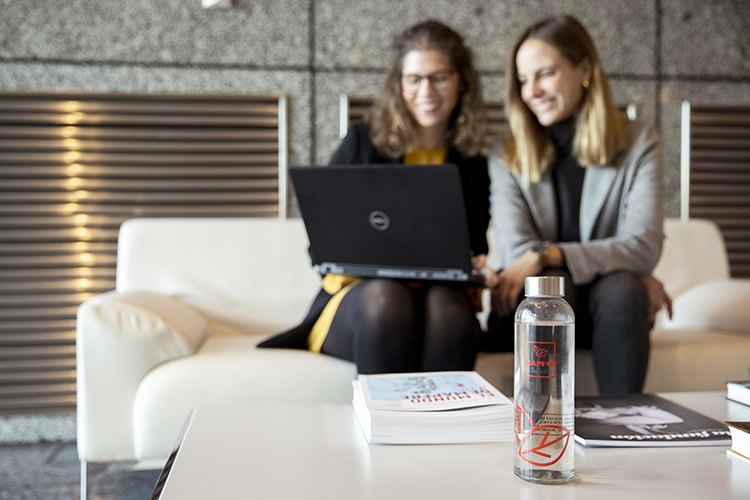
With this headline and under the shared slogan “It’s time to act”, Antonio Huertas, the MAPFRE Chairman and CEO, launched his message on the occasion of our active participation at COP25, the 2019 United Nations Climate Change Conference which was held in Madrid on December 2-13.
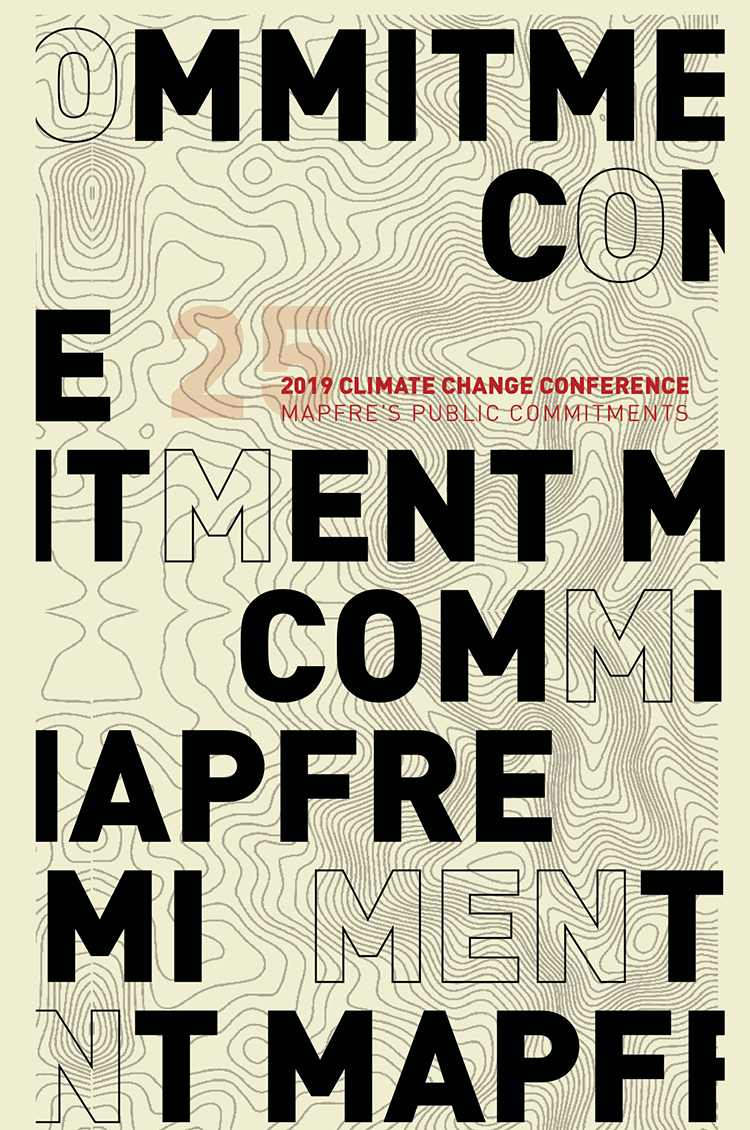
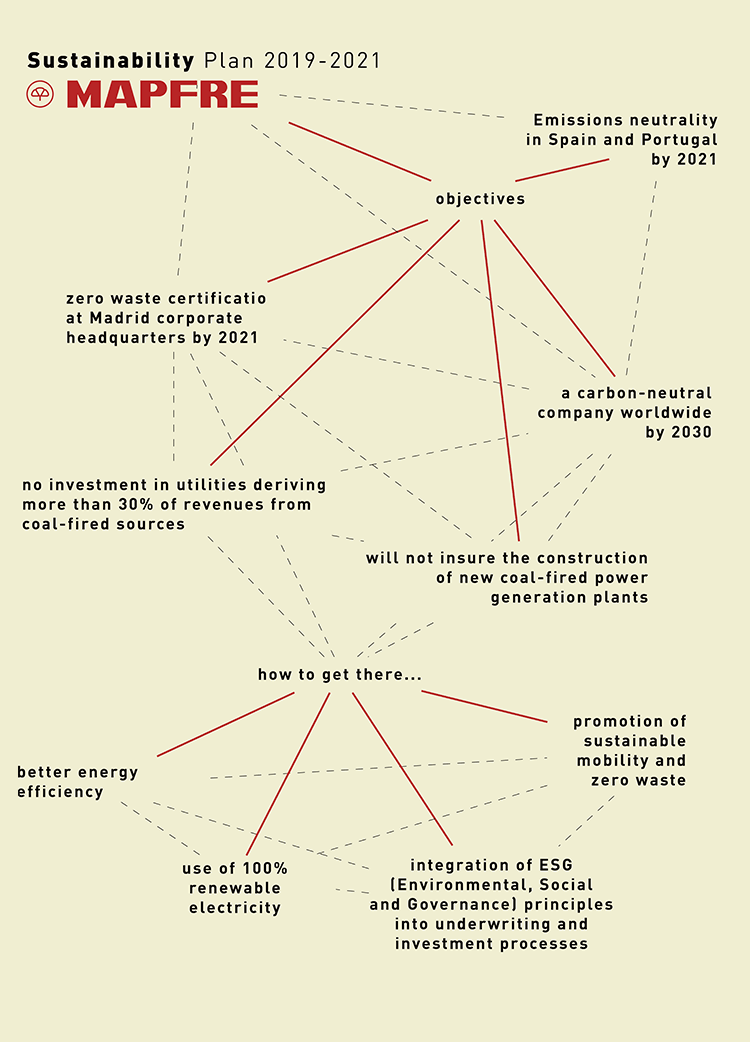
Every effort was made during the event to stress the importance of both businesses and citizens being fully aware of the impact of climate change and the need to take action. One of MAPFRE’s leading activities at the summit was the first showing in Spain of the documentary Los Niños de María [María’s Children], which tells the story of how a country, Puerto Rico, was rebuilt, after being devastated by hurricane María in 2017. As an insurance company, MAPFRE is assuming some of the consequences climate change brings to deprived areas or those which lack the means to mitigate the effects of such events. In 2017 alone, it paid out over one billion euros in compensation settlements to its clients for this kind of claims, thus becoming an essential agent for restoring normalcy following such a major catastrophe.
In Latin America, the volume of catastrophic damage covered by insurance policies is less than 20 percent. In the case of floods, coverage levels are even lower, less than 10 percent, which means there is a huge protection gap in the region, and it is even growing in some countries. This, in the words of Antonio Huertas, “is something that must be addressed; it is crucial for governments in the region to better recognize the role and the benefits of insurance, as an efficient tool for protecting against and indemnifying these kinds of catastrophic risks.” This and other reflections were shared by the MAPFRE Chairman and CEO during his inaugural speech at the third edition of the Insuresilience Global Partnership Forum, an annual event which was held in Madrid on the margins of COP25 to address the question of developing tools for providing vulnerable people in developing countries with climate risk coverage.
Climate change is forcing citizens to modify the way they move around, the way they drive and, even, their decisions when purchasing a vehicle. All these subjects were addressed in the colloquium entitled Road Safety for a Sustainable World, also organized by MAPFRE within the events at COP25.
“Achieving a safe, responsible, sustainable mobility model which is respectful of cities and their inhabitants calls for a change of mentality. We have no excuse whatsoever, as there exist opportunities and actions within easy reach.” This was emphasized by the Prevention and Road Safety Manager at Fundación MAPFRE, Jesús Monclús, who referred to the need for us to move around in a more active fashion – e.g. walking or cycling – as well as the need to respect speed limits – key to reducing both emissions and accident rates – and boost education in safe, sustainable, healthy mobility in schools all around the world.




